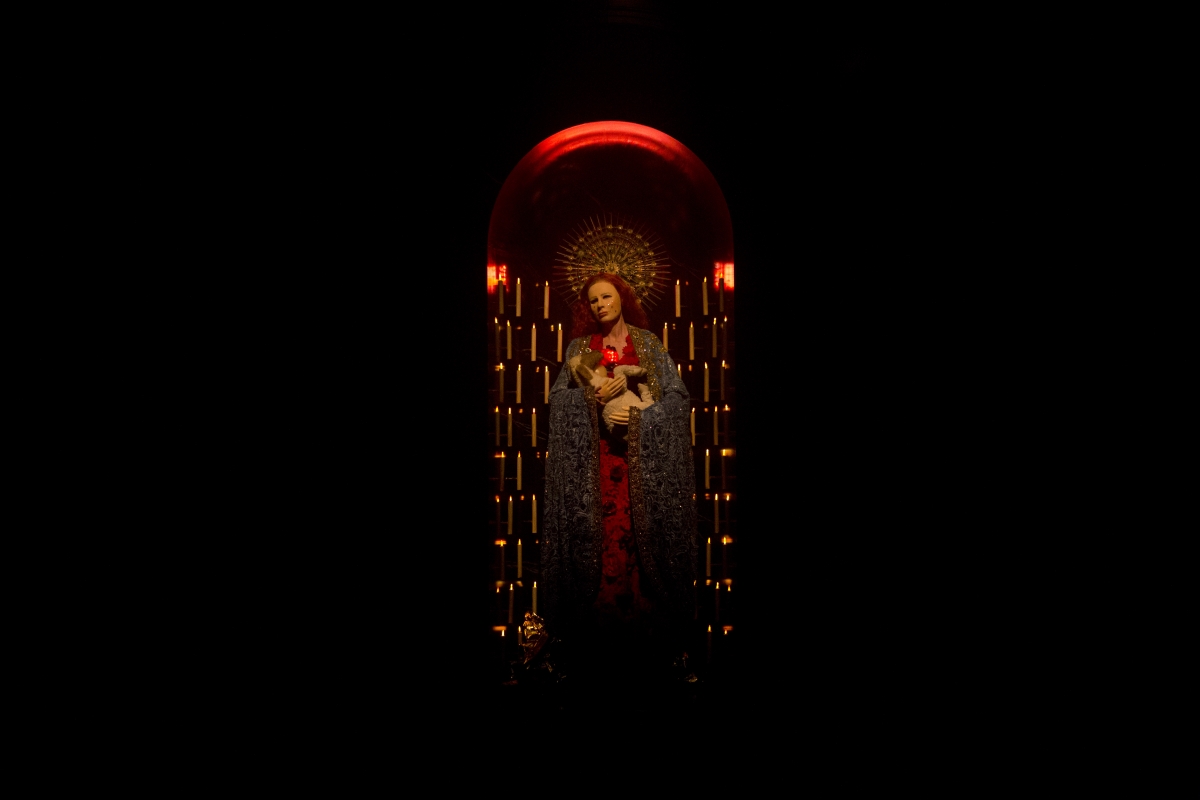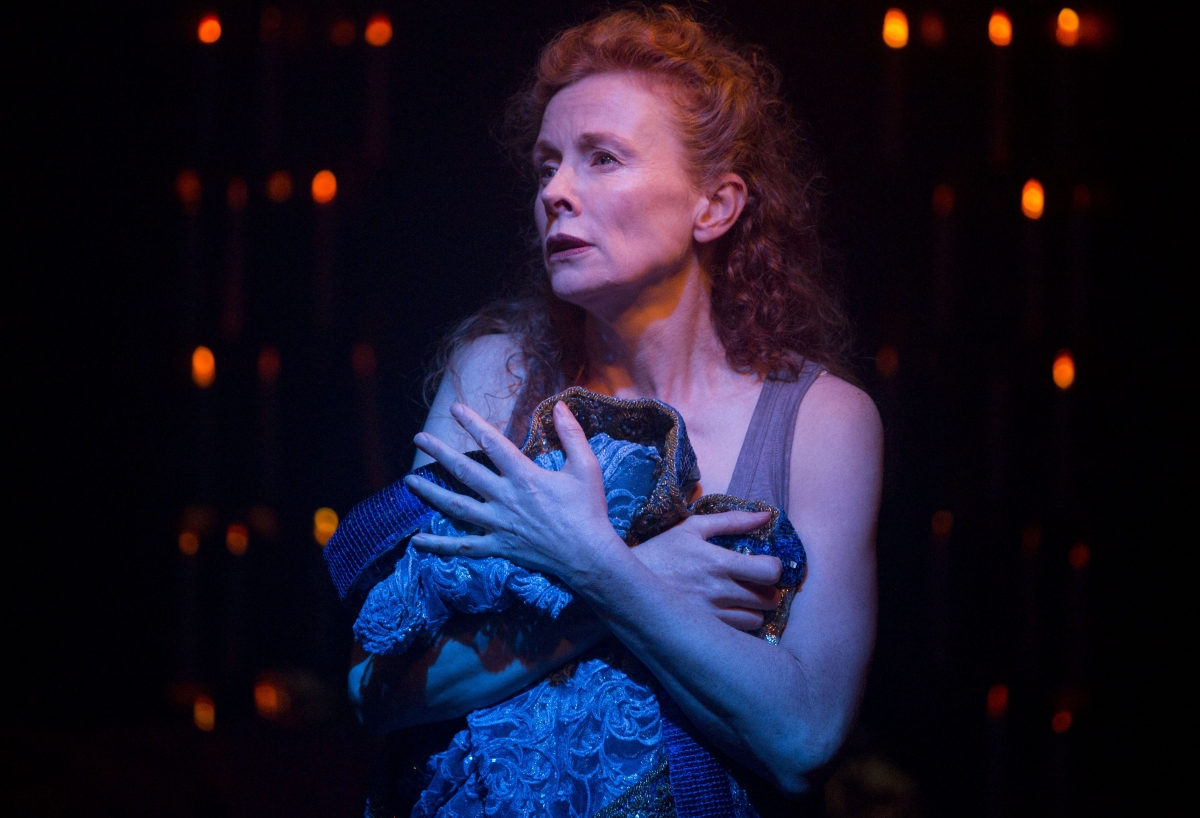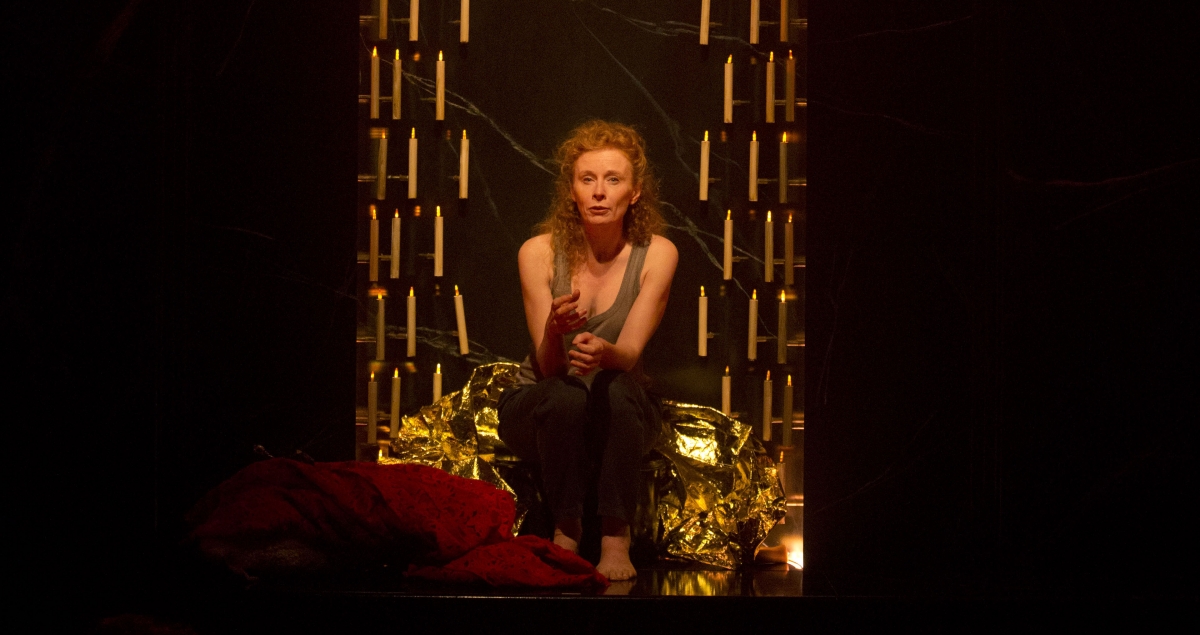A single candle flickers in the darkness, soon joined by others, illuminating a niche in which stands a pale statue of the Virgin Mary. She holds a stuffed toy lamb, her halo spinning gaudily, her heart glowing with a kitsch electronic light. The stage is black marble, ringed with a velvet rope. A single chair and a cardboard box are the only furniture in this sombre space.
Slowly, the statue moves. A porcelain hand is discarded, giving way to a human hand, as the Virgin Mary sheds the symbolic trappings that history has bestowed upon her. Robe, wig and mask fall away to reveal a woman – played by Alison Whyte – dressed simply in pants and tank-top.
 Alison Whyte in Sydney Theatre Company’s The Testament of Mary, all photos by Lisa Tomasetti
Alison Whyte in Sydney Theatre Company’s The Testament of Mary, all photos by Lisa Tomasetti
It is Mary’s humanity, rather than her divinity, that Colm Tóibín explores in his monologue (also a novella) The Testament of Mary, brought to life in this production by Sydney Theatre Company. Tóibín’s Mary is a political refugee living in hiding in a foreign land, forced to flee Jerusalem after the death of her son. She is hidden by – or captive to – two of her son’s followers, who hound her for her memories of Jesus’ life and death while she grieves for both her lost son and husband.
Intelligent and cynical, Mary retells the story of Lazarus – noting that it is at least third-hand by the time it reaches her – and hints at charlatanism at the wedding in Cana. She recalls the events of her son’s life without sugar-coating – much to the frustration of her minders who are intent on building a mythology.

She recalls being pushed aside by her imperious, radicalised son, who seems intoxicated by his own charismatic power as he rides the political currents that swirl during the Roman occupation of Judea. She is bitterly ironic as she recalls her minders explaining her son’s conception to her. (It is telling that the immaculate conception is only mentioned in two out of the four Gospels).
Whyte is compelling as Mary, sustaining a heroic level of focus across the 80-minute performance as she deftly stokes the slow-burn intensity of Tóibín’s arc. Her Mary is both sympathetic and defiant as she tells her own version of events, unbowed by the pressure to downplay her son’s (and her own) humanity or weaknesses. Her delivery is augmented by Max Lyandvert’s sound design, which highlights key passages with prophetic reverberations that seem to rattle the very structure of the theatre.

Director Imara Savage chooses to place Mary not in period, but in a museum-like space outside history. The Virgin Mary paraphernalia that Whyte discards in the opening scene become props that litter Elizabeth Gadsby’s set. Lyandvert’s music combines with Emma Valente’s lighting to carve up the monologue into short crisp scenes, brutal changes that jolt the audience and allow Whyte to suddenly switch mood and voice.
But it is Whyte’s performance that carries the show. Her vivid intensity and detailed attention to Tóibín’s text leaves the rest feeling superfluous. This is story-telling at its finest – the defiance of a woman who refuses, for as long as she can, to have her story dictated by others.
Sydney Theatre Company’s The Testament of Mary is at Wharf 1 Theatre, Sydney until February 25











Comments
Log in to join the conversation.